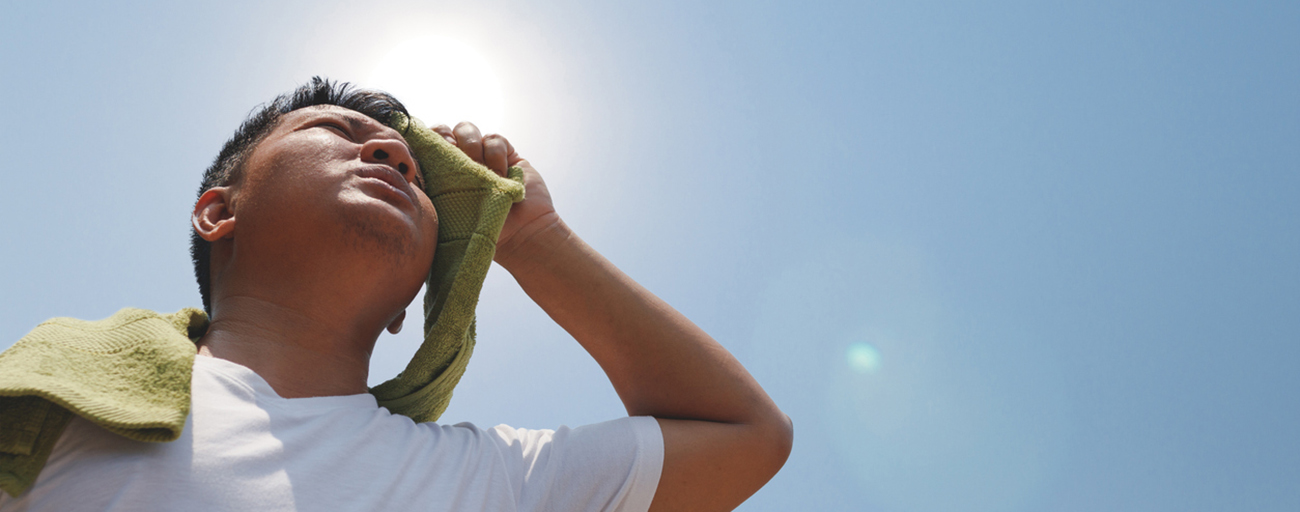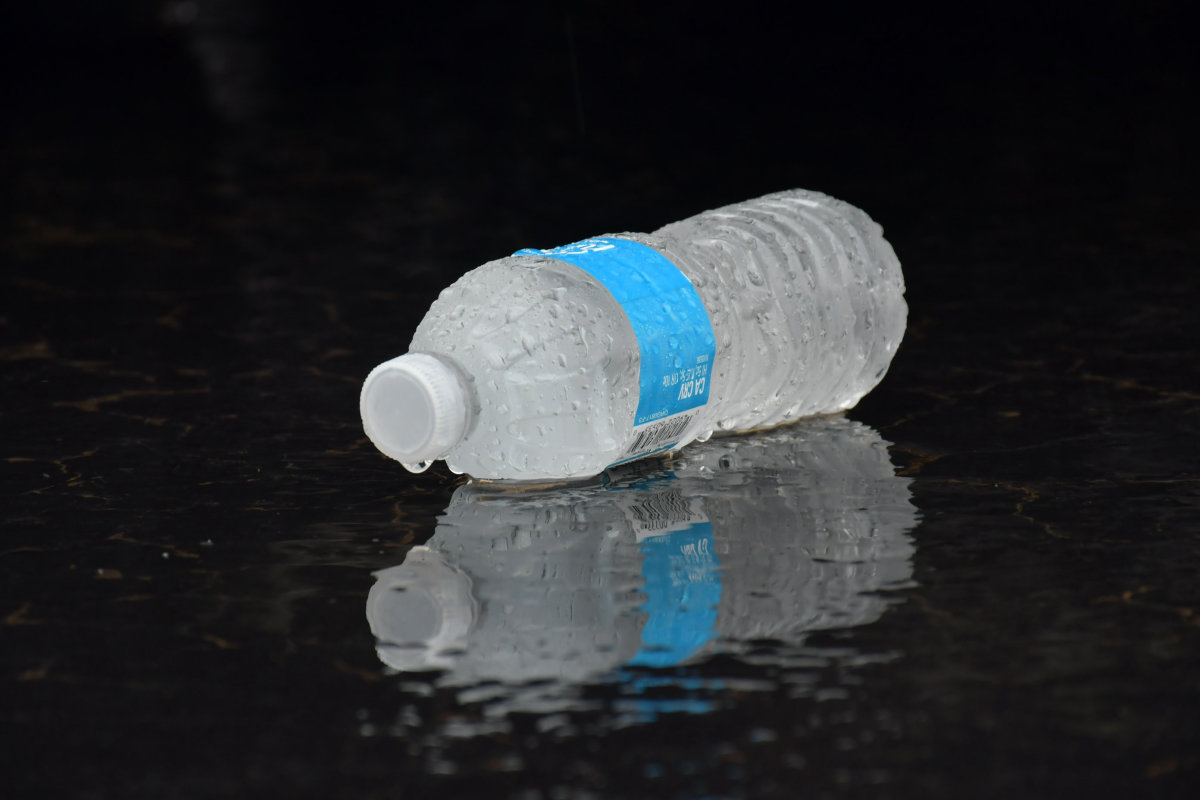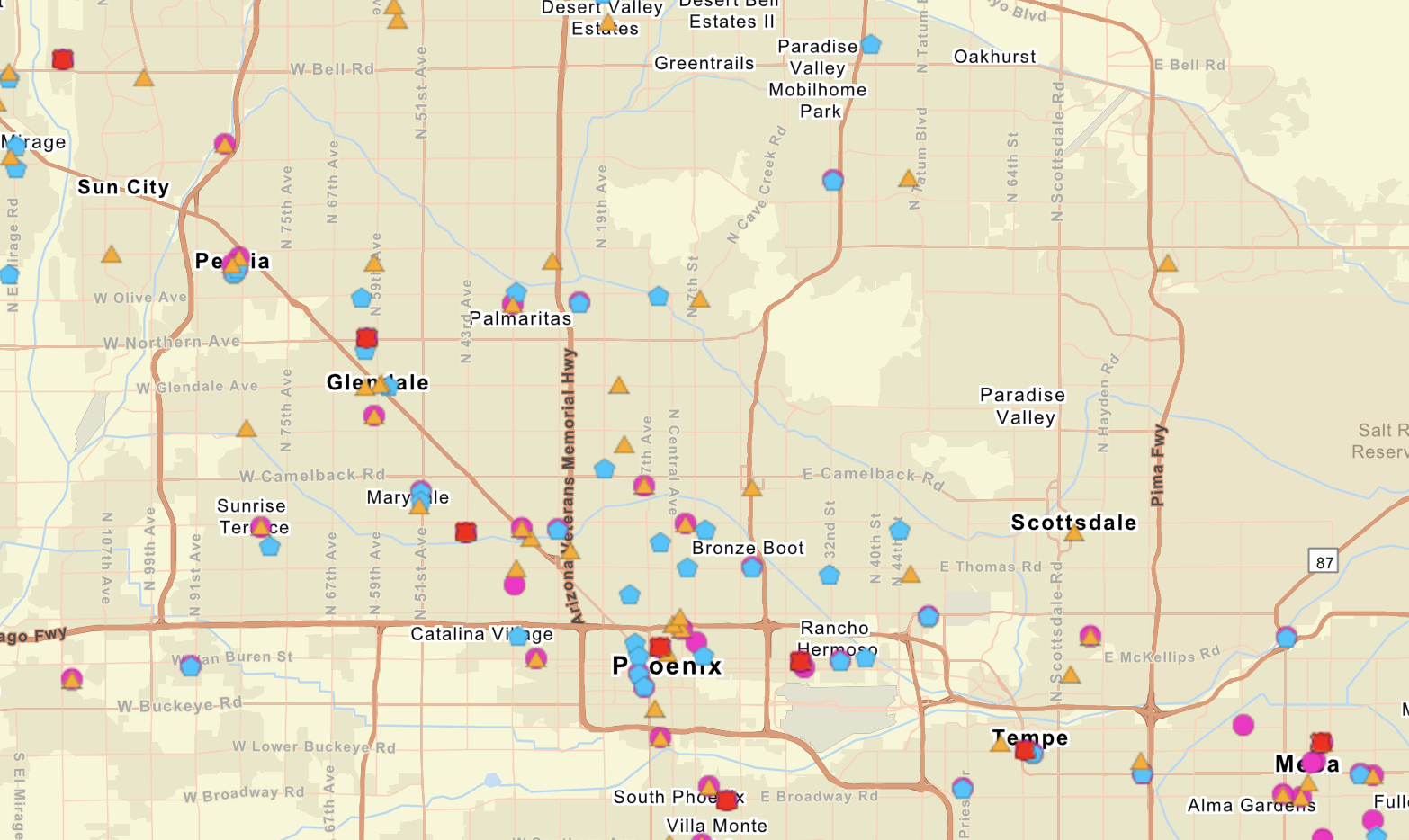
Cooling Centers
“Hurricanes and floods leave evidence of destruction for all to see. Heat is an invisible threat with real economic consequences.”
- Melissa Guardaro, Associate Director for Resilience Hubs
Operating cooling centers under COVID-19 conditions
Cooling centers are important community resources for protecting the public from adverse health effects of extreme heat. In the summer of 2020, the combination of the COVID-19 pandemic and record-setting heat posed significant challenges for cooling center operations. Examples of successful practices during the pandemic offer lessons learned about operating heat interventions during a time of compounding and intersecting hazards. ASU teamed up with the Arizona Department of Health Services and other partners to share these findings.
Cooling Center Response Network
The Cooling Center Response Network seeks to connect organizations providing cooling center space with donations of water, PPE, and operational supplies. Register as a cooling center provider or cooling center supplier to provide thermal comfort and better serve the most heat-vulnerable community members during the summer months. KER and ASU Luminosity teamed up with the Heat Relief Network to build this decentralized donation network.
Optimization analysis can help prioritize recruitment into evolving networks
The severe reductions in cooling center capacity in 2020 revealed a need to contemplate where the most important gaps were in the locations of cooling centers. Partners are now working to develop optimization models with support from KER, that can help cooling center network coordinators direct recruitment efforts to locations where the opening of a cooling center might have a disproportionately positive impact compared to other potential locations because they are near an area where vulnerable populations reside.
Partners
-
ASU: Dave Hondula, Chuck Redman and Anne Reichman
-
National Weather Service
-
Cities of Phoenix, Tempe, Glendale, Avondale, Scottsdale and Chandler
-
Public Health Departments: AZ State, Maricopa and Pinal
-
Nonprofits: AZ Faith Network, 211 Crisis Resource, Trees Matter and others
-
Utilities: SRP and APS

